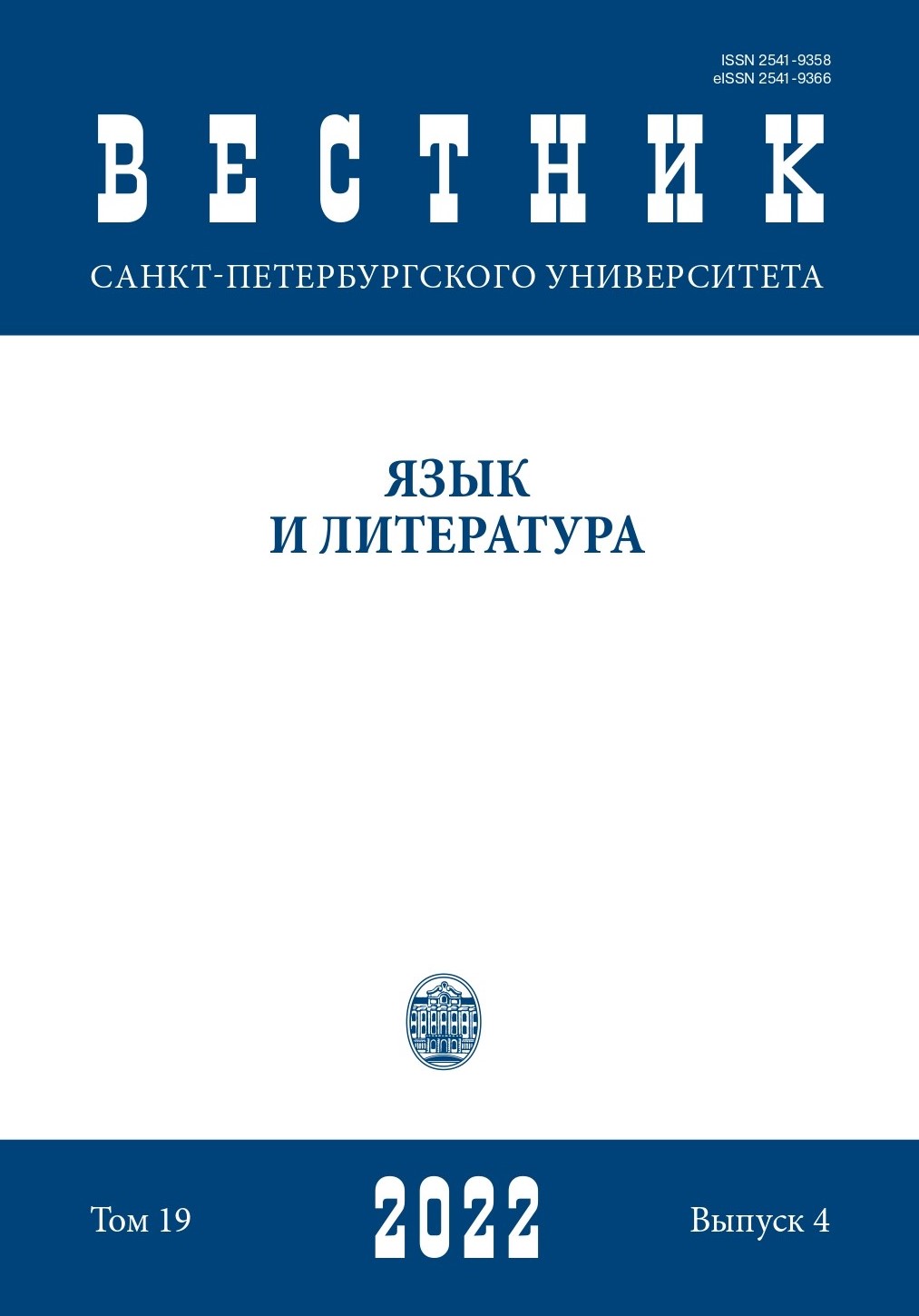Lexical markers of unity in Russia’s state programmatic documents: Words with the morpheme -edin-
DOI:
https://doi.org/10.21638/spbu09.2022.406Abstract
The paper explores lexicon derived from the Russian stem morpheme -edin- as markers of the semantics of unity. The author reveals how these lexical units function and codify social categories. The data include legal-political discourse, i.e. state strategies and concepts that codify social processes, including association and disassociation of social actors. Methodologically, the paper draws on lexical semantics, semantic syntax, discourse analysis and social constructionism assumptions. A set of research operations involves defining the list of the lexical units, discovering their syntagmatic relations, describing their semantics in context, as well as disclosing functional resources of this lexical group. Eleven words with the stem morphem -edin- (used 80 times altogether) have been identified. These words are surrounded by their derivatives and other words that carry the semantics of unity, which predetermines promoting the ideas of unity through the texts. The lexemes are used discriminately in different contexts and realize the set of their meanings in a distinctive way. In terms of language system, the words with the stem morpheme -edin- have a neutral or positive axiological status; however, negative semantics can be constructed in context, through the attributes with negative connotations. Structurally different word combinations allow for varying conceptualizations of unity: as a quality that characterizes subjects of activities, and as an object that is regulated by the state. Unity is conceptualized as a characteristic of four various dimensions: materialistic (unity of the country’s infrastructure), spacial (territorial unity), axiological (unity of social values) and temporal (historical and generation continuity).
Keywords:
lexicon, semantics of unity, word combination, context, legal-political discourse
Downloads
Downloads
Published
How to Cite
Issue
Section
License
Articles of "Vestnik of Saint Petersburg University. Language and Literature" are open access distributed under the terms of the License Agreement with Saint Petersburg State University, which permits to the authors unrestricted distribution and self-archiving free of charge.






